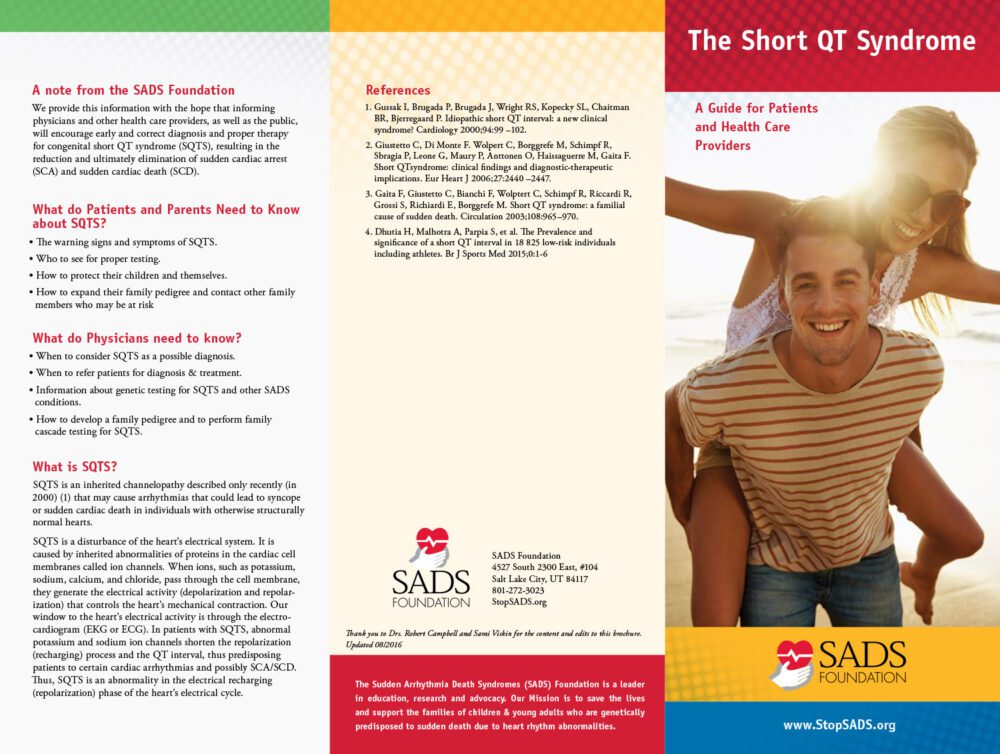Short QT Syndrome
Short QT Syndrome (SQTS) is an inherited channelopathy that may cause arrhythmias that could lead to syncope (fainting) or sudden cardiac death in those with otherwise structurally normal hearts.
About
SQTS is a disturbance of the heart’s electrical system. It’s caused by inherited abnormalities of proteins in the cardiac cell membranes called ion channels. When ions such as potassium, sodium, calcium, and chloride, pass through the cell membrane, they generate the electrical activity (depolarization and repolarization) that controls the heart’s mechanical contraction.
The QT interval is a time interval on the ECG. It represents the time from the initiation of electrical depolarization of the heart’s pumping chambers (ventricles) to the end of the recharging (repolarization) phase for each heartbeat. The QT interval is measured in milliseconds and closely approximates the time from the beginning of the ventricles’ electrical contraction to the end of the repolarization.
Symptoms
The symptoms of Short QT syndrome can be quite varied. Symptoms may include heart palpitations, syncope (fainting) or unexplained seizure, early age onset of atrial fibrillation, known family history of SQTS, or a sudden cardiac arrest.
Diagnosis
A diagnosis of SQTS is often made through ECG findings, and associated known or suspicious history in your family for SQTS. SQTS is a difficult diagnosis because great overlap exists between the QTc of the affected person and the healthy population.
This diagnosis may be associated with sudden infant death syndrome (SIDS) in babies less than 6 months of age, and alternatively, initially diagnosed in seniors. A comprehensive patient and family history is needed before diagnosis, along with the ECG of a QTc of less than 350 milliseconds.
Your doctor can perform genetic testing for disease causing mutations. The clinical genetic test (genotype) would generally be ordered for the member of your family most likely to be affected. If a disease causing SQTS gene mutation is identified, other first-degree relatives in your family will be tested for that specific mutation and if positive, they would then be labeled as genotype-positive for SQTS themselves.
Treatment
Implantation of a cardiac defibrillator (ICD) may be the single most definitive treatment option for people with SQTS, symptomatic or pre-symptomatic. However, ICD therapy is not perfect, and is frequently associated with technical and/or psychological complications.
Your doctor may consider treatment with medications known to prolong the ECG QT internal. Some anti-arrhythmic agendas (e.g. quinidine) have QT prolonging side effects, and thus may be beneficial for those with SQTS.


Community
How SADS and Hopkins Collaborate to Help ARVC Families
We often hear from those with ARVC wondering how both organizations can help support their family, and which resources each organization offers. Here are some answers to your questions.
Get Support
Resources


